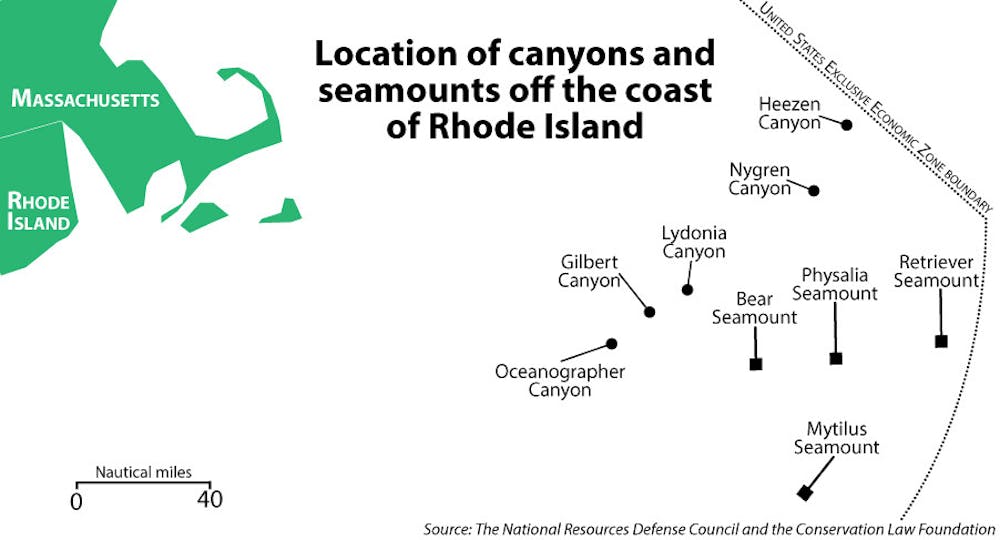President Obama’s proposal to designate three ocean canyons and four seamounts off the coast of Cape Cod as part of a marine national monument has proven somewhat controversial, eliciting both support from environmentalists and concern from fishermen and other stakeholders. The National Oceanic and Atmospheric Administration recently hosted a town hall meeting to gather public opinion on the issue.
If the protection plan is carried out, the area that includes Gilbert, Lydonia and Oceanographer canyons will become the first marine national monument off the shores of the continental United States. Marine national monuments are created to conserve diverse and abundant species in these areas, to “facilitate exploration and scientific research” and to educate the public about these national treasures, according to the NOAA website. Almost all marine-protected areas permit commercial and private fishing, but a fraction of them ban all activities that would involve plant or animal removal. It remains unclear whether or not these restrictions would apply to the proposed monument off the coast of Cape Cod.
Marine scientists and environmental groups urge Obama to use the Antiquities Act of 1906 to protect the canyons and seamounts, arguing that human activity threatens the lives of fish, marine mammals and corals that live there. When companies drill and mine for fossil fuels, oil can contaminate the ocean and cause the “death of all the canyons,” said Buddy Vanderhoop, owner of Tomahawk Fishing Charters. “We have to keep (the ocean) in its natural state and preserve the ecosystem without oil drilling in any of the canyons out there,” he added.
But many fishermen and seafood distributors have spoken out against the potential monument designation. Vanderhoop, who has been fishing in the waters of Martha’s Vineyard for over 45 years, said while the protection plan should ban oil companies from drilling and mining, it should not stop fishermen from fishing above the canyons. “They do little or no harm to the surface of the ocean,” he said.
In August, Gov. Paul LePage, R-Maine, wrote a letter to Obama in which he expressed disapproval toward both the Antiquities Act and the monument designation proposal. “Fundamentally, I oppose (the Antiquities Act) because it is so sweeping and provides few procedural protections to those who are likely to be affected,” LePage wrote to Obama. Voicing his concerns for Maine’s fishing sector, LePage added, “These national marine monuments serve only one purpose — excluding commercial fishing activity from certain segments of the ocean … and these types of designations harm these working Mainers the most.”
The area to be designated as part of the monument is subject to change. Environmentalists initially requested for five canyons to be protected, but Heezen and Nygren canyons were not included when the NOAA announced the town hall discussion. The protection proposal is still being deliberated, and the NOAA is in the process of reviewing comments received online and at the town hall meeting, wrote Ciaran Clayton, spokeswoman for NOAA, in an email to The Herald.
The White House needs to provide more details to the public and be open to community input, wrote Sen. Jack Reed, D-R.I. and Sen. Sheldon Whitehouse, D-R.I. in a joint letter to Obama. They wrote that the lack of clarity and a concrete proposal means that the public has no way of gauging what impact the plan will have on their lives.





